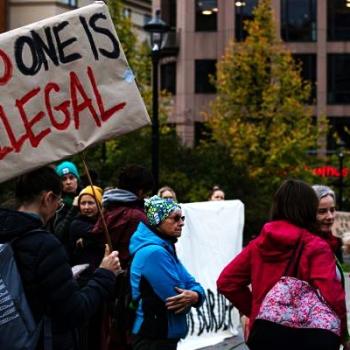In the news recently, the deaths of two people have reminded me that words have power.
Words Have Power for Good: Alexei Navalny
In some ways, Alexei Navalny was a regular guy. He grew up as an “army brat,” for the Red Army, and moved from base to base. He was a lawyer and married an economist. They were raising two kids. One might use the term “yuppie” to describe the couple.

Words of Protest
His captivity smelled of free speech violations and the illegality of disagreeing with President Vladimir Putin. He saw corruption in his home country and knew life in Russia could improve. Navalny criticized Putin and his government for years. He spoke of problems with the parliamentary election in 2011. He ran for mayor of Moscow in 2013 and then for president in a challenge to Putin in 2016, though the Kremlin said that he was ineligible. Navalny made efforts to work within the political system.
While Putin appealed to people who missed the U.S.S.R., Navalny spoke to younger people who wanted to live in a so-called “normal country.” When he was barred from appearing on television, he used social media and YouTube to deliver his message that the Russian people deserved better. In 2011 alone, he was arrested 15 times and occasionally for protesting without a permit. He was poisoned, survived a chemical attack to his face that almost blinded him, and miraculously lived after the administration of a nerve agent.
Words that Threaten
Those who wanted to shut Navalny up brought up a fraud conviction. He was detained for parole violations and tried for fraud in 2022. In 2023, he received a sentence of 19 years for extremism.
Alexei Navalny shared a vision of Russia that appealed to many people People in Russia and around the world held him in great esteem. He died in a prison camp above the Arctic Circle. The cause of his death is unknown, but few think it was of natural causes.
Navalny knew that speaking out and protesting could lead to his death, because words have power and can bring hope. Words can also can threaten people who like the status quo.
Words Used for Evil: The Death of Nex Benedict
One would hope that challenging the status quo would not lead to death in the United States as it did for Navalny in Russia. Unfortunately this is not true.
In an Oklahoma high school girls’ bathroom, Nex Benedict’s peers attacked them. Nex was non-binary. They died after collapsing the following day.
Oklahoma is currently not an LGBTQ+-friendly state. Nex was attacked for who they were rather than for leading protests and criticizing the government. Other people’s words were the cause of the attacks.
In Oklahoma, there has been negative speech about LGBTQ+ persons by the governor, the legislature, and the superintendend of public instruction.The words of the state’s governor, Kevin Stitt, were powerful when he equated sex with a person’s biological sex at birth. This led to laws that required students to use the bathroom corresponding to their sex at birth. The words of state legislators were powerful when introducing 50-plus laws against LGBTQ+ people. The State Superintendent of Public Instruction, Ryan Walters, appointed a person to a library board who targeted LGBTQ+ faculty through her TikTok site.
Given the stated perspectives of elected or appointed authorities, one suspects that they reflect the beliefs of the voters. Perhaps parents, neighbors, and relatives did not see the harm in expressing their views about members of the LGBTQ+ community. This opinion then rubbed off on the attackers.
In Oklahoma, an attack on a person in the LGBTQ+ community is not a hate crime. The school did not call an ambulance even though Nex had “bruises and scratches” to their face. A spokesperson from Freedom Oklahoma said, “whether Nex died as a direct result of injuries sustained in the brutal hate-motivated attack at school or not, Nex’s death is a result of being the target of physical and emotional harm because of who Nex was.” The same organization drew a direct link to the “(dehumanizing) rhetoric and policies that are commonplace at the Oklahoma Legislature, the State Department of Education, and the Governor’s office.”
Words Have Power to Create Change and Cause Violence
When we believe we are in a group of like-minded people, we might think that we can share our true feelings about a “group of other people”. This company is possibly the last place that a person will feel safe to speak honestly about diverging views or claim that a member of their own family belongs to the other group.
Former president, Donald Trump, verbally encouraged followers to storm the capital and people died. Prior to the Holocaust, the Nazi party made all sorts of efforts to lower the country’s opinion of Jews, using words. Navalny died because of his advocacy and Nex died for their identity. Words have great power for good as well as evil.













